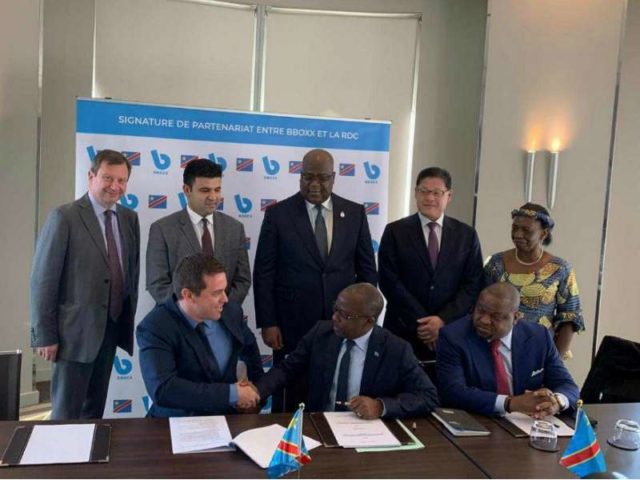British firm Bboxx, has signed a memorandum of understanding (MoU) with the Government of the Democratic Republic of Congo (DRC) to bring affordable, reliable and clean electricity to about 10 million citizens of DRC by 2024.
The MoU builds on Bboxx’s ongoing work in the country where it has already provided 200,000 people with access to electricity.
The agreement was signed by Eustache Muhanzi Mubembe, DRC’s Minister of Hydraulic Resources and Electricity and Co-founder and COO of Bboxx Laurent Van Houcke at the UK – Africa Investment Summit in London.
In a statement posted on the company’s website, Bboxx was of the view that access to electricity would trigger wider economic growth in the DRC, while helping to advance the United Nation’s Sustainable Development Goals.
The company continued that delivering reliable, affordable energy (SDG 7), will drive the creation of 100,000 jobs and promote sustained, inclusive economic growth (SDG 8) as well as offset 4m tonnes of CO2e emissions to help combat climate change (SDG 13).
“With the DRC’s growing population, new grid connections are needed each year to keep the electrification rate constant. My ambition is to use decentralised and renewable energy solutions as a foundation to improve the country’s electrification rate from 9% to 30% during my presidency,” President Tshisekedi of DR Congo declared.
On his part, Mansoor Hamayun, CEO and Co-founder of Bboxx, said “It’s very encouraging to see the DRC’s ambitious vision to use the latest technology to improve the country’s energy access and to drive economic development.
“Bboxx has already had a tangible impact in the country and we look forward to strengthening our partnership with the government to continue to transform more lives. This agreement will be the key to unlocking the potential of underserved communities and to ensure a successful socio-economic impact on the Congolese population.”
Bboxx Ltd is a next-generation utility, is a British company that manufactures, distributes and finances decentralised solar powered systems in developing countries.
Source: www.energynewsafrica.com
















